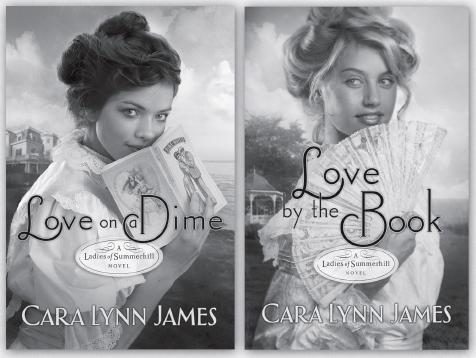Love on Assignment (43 page)

1. Mr. Phifer presents Charlotte with an opportunity to further her career, but it involves compromising her integrity and secretly spying. She asks herself: “Was it really ethical to investigate an unsuspecting man, even for an admirable cause?” What do you think?
2. Charlotte is surprised by how kind Daniel Wilmont turns out to be when she interviews for the governess position. When is heeding someone's reputation important and when is it too judgmental? Have you ever made decisions about someone's character before you actually met them?
3. When Charlotte begins working for the Wilmonts, Daniel does not know his children very well. How does she help him grow closer to them? Why is she in particular so effective in helping Daniel with this?
4. Charlotte and Daniel do not always agree on how to raise children. Charlotte believes the children should have more freedom while Daniel believes in constant supervision and guidance. Is one opinion more right than the other? Why or why not?
5. Why did Charlotte find it strange when the children and Daniel prayed for things like her hurt shoulder? Do you ever think some of your problems are too small to pray for? What does God actually tell us about prayer?
6. Mr. Phifer and Daniel are both Charlotte's bosses throughout the novel. What obstacles does having two supervisors cause for Charlotte? Have you ever tried to serve two masters? What was the outcome?
7. Several characters in the novel have difficult pasts that haunt them. How does their remembered pain affect their present-day decisions? And how do many of them decide, like Daniel does, to “shake off sad memories and concentrate on . . . life” ?
8. Charlotte reads this Bible verse: “But he that doeth truth cometh to the light, that his deeds may be manifest, that they are wrought in God.” What does it have to do with her story in the novel?
9. The attic at the Wilmonts' house is crowded with old, forgotten trinkets that Daniel doesn't want to let go of. What else does he not want to let go of in his own life? Is your “attic” too crowded right now? How can you clean it out, focusing on the present instead of the past?
10. Ruthie and Tim lost their mother when they were young. What stress has this put on Daniel? What struggles does a single-parent home face that one with both parents would not understand?
11. Why do think Sarah, Daniel's wife, experienced so much depression despite her wealth and societal status?
12. Sarah's journal reveals a lot about her marriage to Daniel. Was one party to blame over the other for their unhappiness? How could they both have been at fault?
13. At one point, Daniel says his work comes first in his life. How do you balance work and a family? What or who should be prioritized and when?
14. Why were Daniel's columns for the
Newport Gazette
considered so controversial in that time period? What would people reading them today think?
15. Daniel is given an ultimatum by his boss: either stop writing his newspaper column or lose his job as a professor. What would you have done if you were Daniel? Have you ever been forced to choose between your values and your source of income?
16. Vivian Wilmont does not hide her bad opinion of Charlotte but eventually reveals the reasons for her unkindness. Were you able to understand why Mrs. Wilmont would be so protective of her son? How does her character accurately depict the complex relationship with in-laws and with mothers and sons?
17. After seeing how Missy LeBeau acted around Daniel, Charlotte asked herself, “Why was the professor so open and trusting to others, ignoring their less than honest motives?” What do you think? How do you balance trusting others too much and too little?
18. Why is Charlotte reluctant to accept Daniel's proposal? What obstacles were they facing as a couple?
19. Ruthie makes a poignant statement when she says “praying is important, but sometimes the Lord is slow in answering.” How did several characters in this novel have to wait on the Lord? Do you ever feel He is slow in answering?
20. Charlotte says she often adjusts her ethics according to what situation she is in. Are you more moral in some situations than in others? Do some of your high standards not apply in certain areas of your life?
“A charming peek inside life during the Gilded era.
Highly recommended.”
âC
OLLEEN
C
OBLE
, best-selling author of
The Lightkeeper's Daughter

C
OMING
J
ULY 2011
